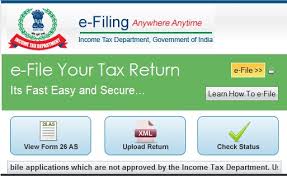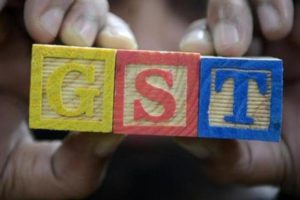 Most of us collate all information relating to our annual income, investments and tax deducted at source (TDS) before proceeding to file our income tax returns. However, the income tax filing process is a fairly comprehensive exercise. We might miss disclosing an income due to oversight, or claim an exemption or deduction that is not due. What are the options available to us if we make a mistake while filing returns?
Most of us collate all information relating to our annual income, investments and tax deducted at source (TDS) before proceeding to file our income tax returns. However, the income tax filing process is a fairly comprehensive exercise. We might miss disclosing an income due to oversight, or claim an exemption or deduction that is not due. What are the options available to us if we make a mistake while filing returns?
We may make an error due to insufficient information or mis-match between Form 16 / Form 16 A and Form 26 AS or any other reason. Errors may also occur in our calculation. The income tax law allows us to file a revised return, correcting the omission or mistake made by us in the original return.
Filing a revised return
You can file a revised return at any time before the end of the assessment year, or before completion of the assessment, whichever is earlier.
For example, for the AY 2019-20, you can file a revised return till 31 March 2020. However, if your assessment is concluded before that date, you cannot file a revised return after completion of your assessment. An income-tax assessment is made through a notice issued by the assessing officer where your income and taxes are determined through assessment proceedings. In some situations this assessment may be completed before the end of the assessment year. If this is the case, you can no longer revise your return.
The revised return has to be filed in the same manner as an original return. While filing, a taxpayer has to choose the option: ‘Revised u/s 139(5)’. A taxpayer has to quote the acknowledgement number and date of filing of the original return while filing the revised return. The revised return substitutes the original return.
You may have filed an original return within the due date, or you may have filed after the due date. A return filed after the due date is called a ‘belated return’. You can revise both—a return filed within the due date or a belated one. The time limit for revising is the same for both as discussed above, i.e., before the end of the assessment year or before completion of assessment, whichever is earlier.
You can revise your income tax return any number of times. However, you are required to mention the acknowledgement number of the original return filed. You must note that ‘revised return’ is an opportunity for revision allowed by the income tax department. Hence, one must not misuse it and revise a return only in the case of a mistake or omission in the original return filed. If you are making errors with revisions, it’s in your interest to seek professional help for your return filing.
As is done with an original return, do remember to e-verify your ‘revised return’ as well. Your ‘revised return’ would not be valid if the same is not e-verified. You can e-verify the ‘revised return’ using an OTP (one-time password) based on Aadhaar or net banking or EVC (electronic verification code). You can also send a signed copy of the ITR V to the Centralized Processing Centre, Bengaluru, within 120 days of filing the ‘revised return’.




